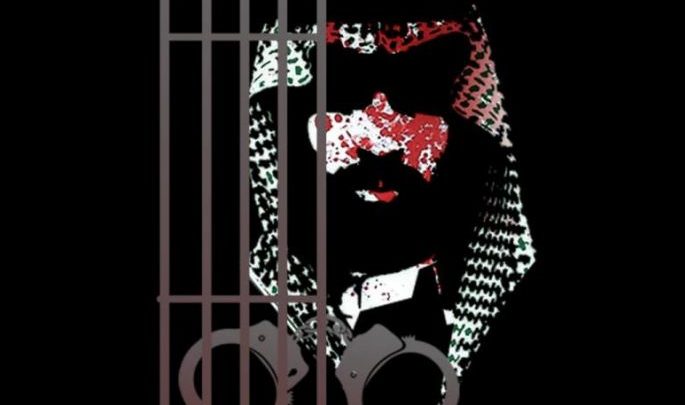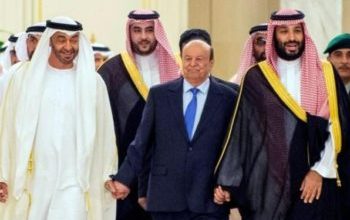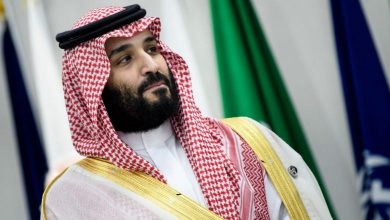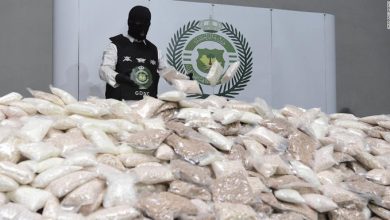DAWN: The World Doesn’t Need to Submit to MBS
By: Sevag Kechichian & Abdullah Alaoudh

In the latest cover story for The Atlantic, staff writer Graeme Wood claims that Saudi Crown Prince Mohammed bin Salman, widely known as MBS, is essentially here to stay as Saudi Arabia’s king for the next 50 years. In a lengthy profile based on two recent interviews with the crown prince at his palaces in Saudi Arabia, Wood suggests that, given that supposed certainty, the United States should pursue a “practical” foreign policy toward MBS, rather than a “moral” one.
“Since reality has handed us MBS,” Wood argues, “the question for America is how to influence him.” For Wood, U.S. leaders should embrace MBS’s social reforms and “anticlerical revolution,” and make sure those changes “stick,” rather than ostracize him and drive him into China’s arms. Wood insists that the U.S. government has little choice but to accept MBS’s brutal methods and absolute power, and basically hope that in the future, “The madness of King Mohammed could give way to something else.”
Hope is hardly a strategy, and nowhere in the more than 12,000-word article does Wood provide any suggestion that the madness of MBS is likely to fade or in fact give way to something else. Not only does MBS continue to commit crimes and lie about them, he clearly dismisses any possibility of an alternative future in Saudi Arabia, one where he does not have the final say in all decisions. If history has taught us one thing, it is that absolute power corrupts absolutely, and the exercise of this power will make life worse, not better, for Saudis, Americans and everyone else.
There is, in fact, a more “practical” and moral option for the U.S. and other countries dealing with Saudi Arabia: deny MBS the recognition and legitimacy he seeks and without which he cannot rule. With Russia’s invasion of Ukraine, Western governments have shown how far they can go in sanctioning and freezing the assets of President Vladimir Putin and his oligarchs. They should do the same with MBS. While the world has rightly turned its attention to Putin’s crimes in Ukraine, Russia’s aggression differs little from Saudi war crimes in Yemen committed over the past seven years, including indiscriminate attacks on civilian areas, which have also implicated the United States, given its military support for Saudi Arabia’s bombing campaign. Instead of accepting 50 years of MBS, democratic leaders should treat him like the pariah he is—a term Joe Biden used himself in his winning campaign for the U.S. presidency.
Consider what MBS has apparently learned about the murder of journalist Jamal Khashoggi. When Wood asked if he had ordered his killing, the crown prince’s latest unconvincing denial was that if the Saudi government dispatched kill teams around the world, Khashoggi would not have made it into his top 1,000 targets and that he would have selected more “professional” assassins. Putting aside just how tone-deaf this response is, what MBS has really learned is that he can literally get away with murder since Western leaders have done little more than refuse to meet with him. While this slight injures MBS’s pride, he can take solace in the continued flow of Western weapons to the kingdom, along with renewed business ties.
But what of the social changes that MBS has brought to Saudi Arabia? Shouldn’t they be applauded and supported? Saudi Arabia seems abuzz with new movies theaters, concerts, global sports events, the intermingling of the sexes, women driving cars—the list goes on. The ease with which these changes were introduced may seem to support the point that many have made, including Wood, that MBS is a “reformer.” But while these changes are largely positive and welcome, let’s not forget that there was already widespread popular support for them. They are long overdue. What’s more, MBS should not be seen as the only force capable of bringing such changes to Saudi Arabia. While many Saudis called for these very reforms for years, and were imprisoned for it, Saudi rulers have long used the excuse that Saudi society is not ready for change to maintain the status quo and their privileges.
Similarly, with religion, much of the writing on MBS’s reforms of the kingdom’s Islamic institutions simply overlooks the fact that near absolute power still rests with Saudi rulers, and increasingly MBS himself. Such an arrangement courts instability, and when power resides only in the hands of a few, reforms are tenuous and subject to reverse. In this sense, MBS’s religious reforms, including to rein in the privileges of the religious establishment, are in fact part of his crackdown on all forms of competing authority, to ensure that everyone in Saudi Arabia, including its clerics, are blindly loyal to him and will not challenge his policies. Those who do speak out are not usually radical Wahhabi preachers; they are moderate or progressive clerics who have been preaching the importance of tolerance and freedom, such as Salman Alodah, Awad al-Qarni and Ali al-Omary. This is why MBS ordered their arrest and detention in 2017, and this is why he is slowly killing them in prison.
In contrast, radical Wahhabi clerics continue to enjoy a privileged life and to preach hatred. Abdulaziz al-Sheikh, the grand mufti of Saudi Arabia, issued fatwas and statements in 2017 extolling the virtues of obedience to existing authorities and submitting to their policies without question. In 2016, he said that it is “binding upon the believer to love the ruler, defend him and not insult him.” The cleric Saleh al-Fawzan, whom MBS admires, preached on Saudi state television in 2017 that Shia Muslims are not real Muslims, and in September 2018, he issued a fatwa urging the state to kill political dissidents who promote sedition against the ruler. A month later, Jamal Khashoggi was murdered.
Perhaps MBS’s most laughable claim in Wood’s profile is that he is a leader who thrives on dissent. This is from the same ruler who initiated a blockade of its much smaller neighbor, Qatar, over a difference in foreign policy and then imprisoned those critical of his actions, comparing them to Nazi sympathizers during World War II. While MBS eventually made up with Qatar’s rulers, the critics that dared speak out against the blockade continue to languish in jail. The infamous detention and shakedown of nearly 400 princes and businessmen at the Ritz-Carlton in Riyadh in 2017, in the name of supposedly rooting out corruption, also speaks to whether MBS actually tolerates dissent. While seeming to approve of the crackdown as “the forcible sidelining of a crooked royal class,” Wood glosses over the fact that most of those detained in the Ritz were tortured, at least one person died, and many remain disappeared, having not been heard from since their initial abduction.
The reality is that MBS has destabilized the Middle East. His reckless military intervention in Yemen turned a civil war into a protracted regional conflict, punishing the people in one of the poorest countries of the world. The Saudi-led blockade of Yemen helped turn the country into the world’s worst humanitarian crisis. MBS also notoriously ordered the kidnapping and ill-treatment of Lebanon’s prime minister, forcing him to read a letter of resignation on television in which he made up lies about an imminent threat on his life from Iran. MBS continues to fund and support a counterrevolution to democratic movements across the region, as Arab democracy anywhere is a threat to his absolutist rule. So much for tolerating dissent.
This is not the biography of a future king to whom the world should extend its hand. This is the biography of a brutal murderer with little regard for human life. But we knew all of this already. Behind Mohammed bin Salman’s bizarre lies and carefully choreographed “reformist” image is a ruthless leader with almost limitless wealth and menacing ambition.





